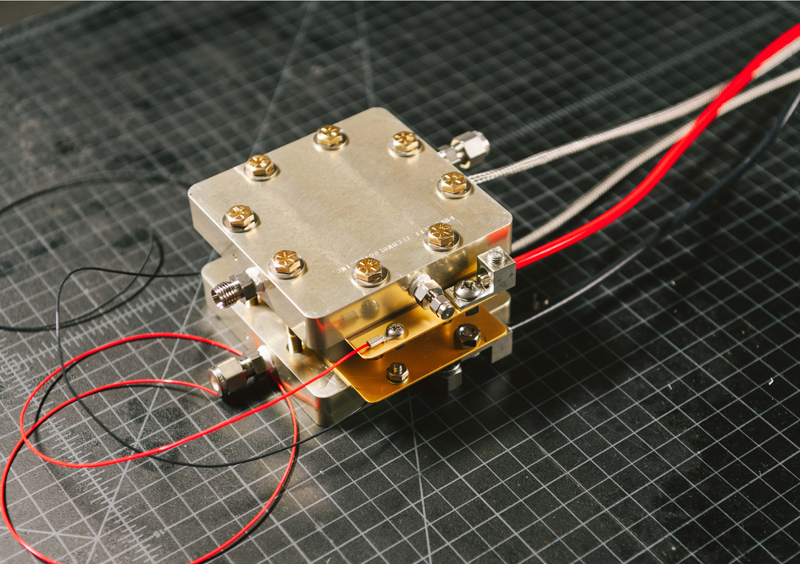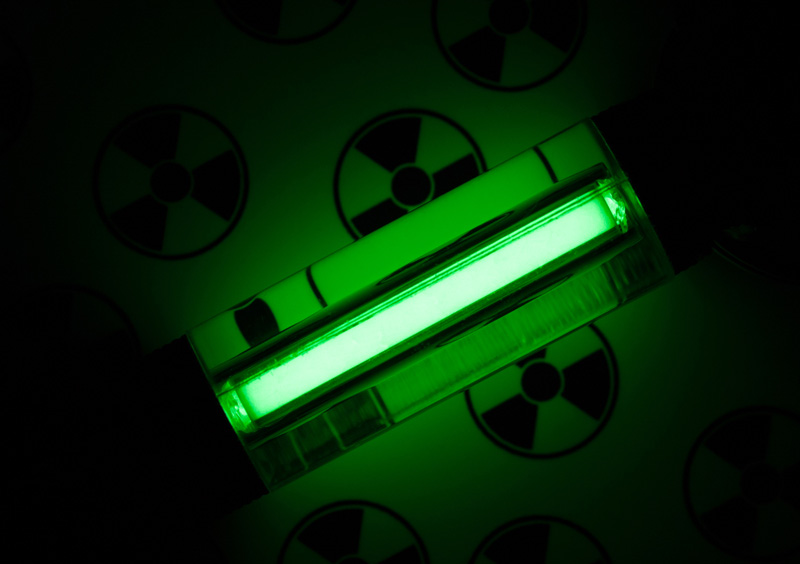
Los Alamos National Laboratory has entered a new phase in its collaboration with Advent Technologies, a company developing advanced hydrogen fuel cell products for commercial and defense applications. Under a new enhanced license agreement, Advent receives limited exclusivity to the Lab’s patented Ion Pair Membrane Electrode Assembly (MEA) technology, which improves hydrogen fuel cell performance.
“Los Alamos National Laboratory has been at the forefront of hydrogen fuel cell research and technology for decades,” said Lab Director Thom Mason. “This licensing agreement provides an excellent opportunity to expand our capabilities in this area while also providing significant benefits for key partners in both the private and public sectors.”
The basis for Ion Pair MEA was first developed in 2016 by the Lab’s fuel cell program, one of the longest-running non-weapons programs at Los Alamos. In the past five years, the Lab and Advent have advanced these membrane electrode assemblies — a crucial component for hydrogen fuel cells — so the technology might benefit a broader array of applications: in everything from defense, stationary power generation, to transportation, including trucks, maritime and aviation.
This new agreement expands on a relationship that initially grew out of the L’Innovator 1.0 program, a technology transfer collaboration between the Lab, private sector corporations, and the Department of Energy. As part of Los Alamos’ national security mission, collaborations of this nature help to transfer inventions developed by researchers to commercial innovations that benefit society.
“This is an exciting project, marking a significant milestone as our fuel cell technology expands into a variety of applications,” said Yu Seung Kim, the inventor of the Ion Pair MEA and a scientist with the Lab’s Materials Synthesis and Integrated Devices group. “The hydrogen fuel cell market — in everything from transportation, trucking and aviation — is expected to grow rapidly in the next decade, and this partnership represents a tremendous opportunity for us to accelerate the commercialization of our fuel cell technology.”
Next-generation hydrogen fuel cells
Hydrogen fuel cells generate power through an electrochemical reaction between oxygen (from air) and hydrogen, which produces heat, water, and electricity. The most common types of hydrogen fuel cells are low temperature and high temperature, both of which come with advantages and disadvantages.
Low-temperature fuel cells, oftentimes Proton Exchange Membrane fuel cells, are reliable and widely used but rely on water as a conductor to transport protons, meaning they cannot operate at temperatures above 212 degrees Fahrenheit (the boiling point of water). This requires heavy, expensive cooling and humidification systems that in turn limit the fuel cell’s applications. High-temperature fuel cells, on the other hand, use phosphoric acid as a conductor, and while they can operate well above water’s boiling point, they typically have a much shorter life span.
Ion Pair alleviates these issues. Along with a team of Lab scientists, Yu Seung Kim, who invented the Ion Pair technology at Los Alamos, developed a polymer electrolyte system that relies on protonated phosphonated polymers. Essentially, this new process draws upon the advantages of both previous fuel cell systems while avoiding their pitfalls, resulting in, among other things:
- A 60% improvement in energy production
- A wider temperature operation window (between 176 and 320 degrees Fahrenheit)
- No complex, costly humidification or cooling systems
- More efficient energy conversion
- No use of perfluorinated materials
- Increased durability within operational temperature range
- A less-costly, simplified manufacturing process.
As a result, Ion Pair technology opens hydrogen fuel cell power to uses that were previously too costly, complicated, or inefficient. In honor of this achievement, in 2024 the Lab and Advent Technologies were awarded a coveted R&D 100 award for their joint Ion Pair MEA submission.
Jim Coffey, Advent’s Chief Operating Officer and General Counsel stated, “The issuance of the new enhanced license for Ion Pair further validates both Advent’s success as a commercialization partner, but also the importance of Los Alamos National Laboratory’s Ion Pair MEA technology in making a difference in the field of power generation.”
About Los Alamos National Laboratory
Los Alamos National Laboratory is a multi-program, federally funded research and development center for the National Nuclear Security Administration (NNSA) of the U.S. Department of Energy (DOE). The Laboratory’s priority roles are serving as a nuclear weapons design agency and a nuclear weapons production agency; addressing nuclear threats; and performing national security science, technology, and engineering.
About Advent Technologies
Advent Technologies Holdings, Inc. is an innovation driven technology company in the fuel cell and hydrogen technology space. The Company’s vision is to accelerate electrification through advanced materials, components, and next-generation fuel cell technology. Our technology applies to electrification (fuel cells) and energy storage (flow batteries, hydrogen production) markets, which we commercialize through partnerships with Tier1s, OEMs, and System Integrators. Advent is headquartered in Livermore, CA, with offices in Athens, Patras and Kozani Greece. With approximately 150 patents issued, pending, and/or licensed for fuel cell technology, Advent also holds the IP for next-generation HT-PEM that enables various fuels to function at high temperatures and under extreme conditions, suitable for the automotive, aviation, defense, oil and gas, marine, and power generation sectors. For more information visit our website.
LA-UR-25-28445
Contact
Public Affairs | media_relations@lanl.gov



